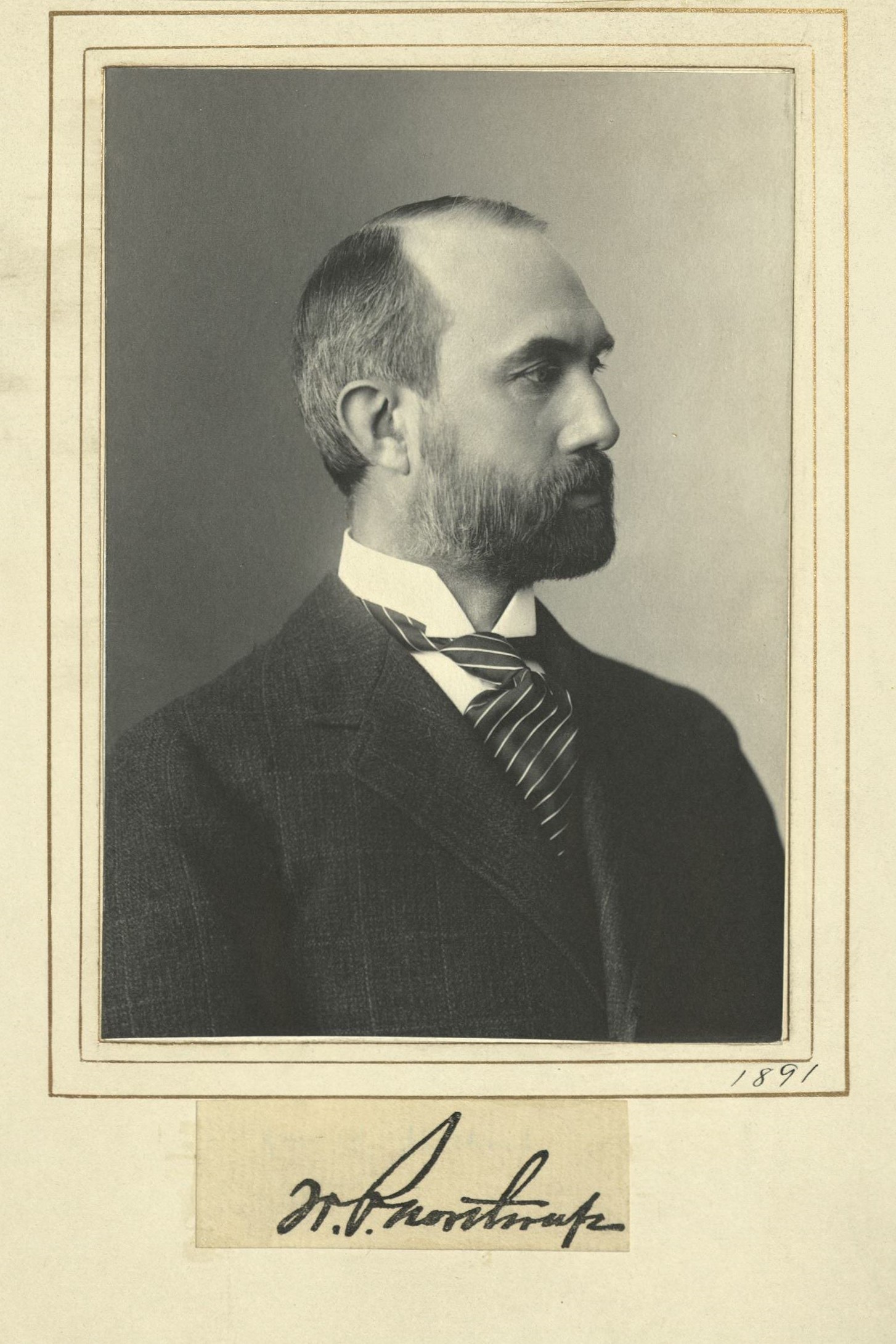Member Directory,
1847 - 1922
Herman H. Kohlsaat
Editor
Centurion, 1922–1924
Charles R. Miller and William A. Dunning
Albion, Illinois
Washington, District of Columbia
Age sixty-eight
Washington, District of Columbia

Century Memorial
To those of us who have happened to make up the daily gatherings at the Club-house, nothing can seem more impossible than the Club-book’s testimony that Herman Henry Kohlsaat had been a member of the Century for only two years. His close acquaintance with a long and ever-lengthening list of fellow-members, his almost invariable presence as central figure in the groups that discussed the afternoon or evening news, were of a kind that comes very rarely except with club associations of a quarter-century. He seemed somehow always to have been one of us. But to Kohlsaat, friendship and social contact of the intimate sort were instinct. It may be doubted if he ever consciously adopted Dr. Johnson’s dictum, counting that day lost in which he had not made at least one new acquaintance. But the result was the same, except that the autocrat of the Club in Sackville Street held sway through personal dominance of the talk, whereas Kohlsaat’s place in club-life came through the easy give-and-take of conversation, the matching of individual impressions, apposite anecdote and humorous reminiscence with the talk of other men. He never forced the topic; he never monopolized the conversation. Unlike what we sometimes call our brilliant conversationalists, it was Kohlsaat’s pleasure to listen to the talk that was tossed lightly back and forth in a corner of the reading-room, capping the conversation with a few observations of his own—always to the point, never cynical or ill-humored, frequently drawn from his own large experience with men and events.
That experience was an extraordinary background. It covered the politics and journalism of half a century, not in the least with a philosophic view, but with a vivid close-range picture of almost every historic personage that had crossed the scene. To Kohlsaat’s intimacies there seemed to be no bound whatever. With our well-known authors he was on terms of close affiliation. He and the best of our actors called one another by their Christian names. Although Kohlsaat himself undoubtedly preferred the prandial democracy of the Century’s long dinner-table, our worth-while newspaper editors were his constant guests at a side table in the dining-room. Clemenceau would not leave New York without looking in at Kohlsaat’s sick-room at the Biltmore.
Most people, even of highly social instinct, would have stopped with this; but not so Kohlsaat. His affiliation with the successive occupants of the Executive Mansion and Department headquarters—regardless of political alignment and always on a footing, not of the formal visitor who came to ask official favors or report the people’s admiration, but of the good-humored counsellor who wanted nothing and did not hesitate to utter friendly warnings—was something which would be hard to match in political history. It was, indeed, an association no more one-sided than his Club acquaintanceship. The private citizen of whom the present incumbent of the White House could write, last October, that “he has been exceedingly kind to me and sympathetic with the efforts which I have been making,” must assuredly have been something out of the ordinary.
Of Kohlsaat’s picturesque journalistic career it is hardly necessary to speak. His book of reminiscence is his own ingenuous story, and what is not contained in that delightful volume has been thrown off casually many times in his Club-house conversation. During nearly thirty years his part in the famous “gold plank” at the convention of 1896 was undoubtedly nearest his own heart. That formal declaration of purpose and policy, which may be described as the logical forerunner of the Gold Standard Act of 1900, of the immense American prosperity of the next half-dozen years, of the maintenance of American gold payments in the war panic of 1914, and of today’s unprecedented economic prestige of the United States, was no doubt primarily the achievement of those sturdy economists and statesmen who fought the twenty-year battle with silver inflation prior to 1896—among whom, incidentally, could not be numbered either the Republican candidate of that year or the party leaders who, when the platform which declared for gold had carried the election, claimed the merit of the convention’s declaration. But the men who actually stood in the breach at the critical hour of June 12, 1896, were the men who possessed not only sound conviction in the matter but such personal affiliation with both party managers and party candidate as could make possible effective insistence on the bold decision.
Kohlsaat had that; the repute of having quietly forced the hand of the reluctant statesmen is indisputably his. The fact that no formal recognition of the service was ever granted did not trouble him in the least. His reminiscent pleasure lay in having done it, and the personal anecdote of which he was perhaps most fond was of the English friend who put him up at a London club where only authors were allowed the privileges of the place, and who entered Kohlsaat in the visitors’ book as “the author of the gold plank.”
The entry was not needed at the Century; Kohlsaat’s club associates will recall him as of 1924 and 1923 a good deal oftener than as of 1896. His dry, good-humored smile as he passed around the dining-table, stopping here and there with his hand affectionately on the shoulder of a fellow-member, listening to what the other had to say and answering with a word of humorous or sympathetic comment; his cheerful talk on any and every subject with the group which instantly gathered around him in the reading-room; his good-natured word to the coat-room boys (who worshipped him); the friendly linking of his arm with the fellow-member who left the Club along with him—there are not many of us who will forget those pictures.
Alexander Dana Noyes
1925 Century Association Yearbook


